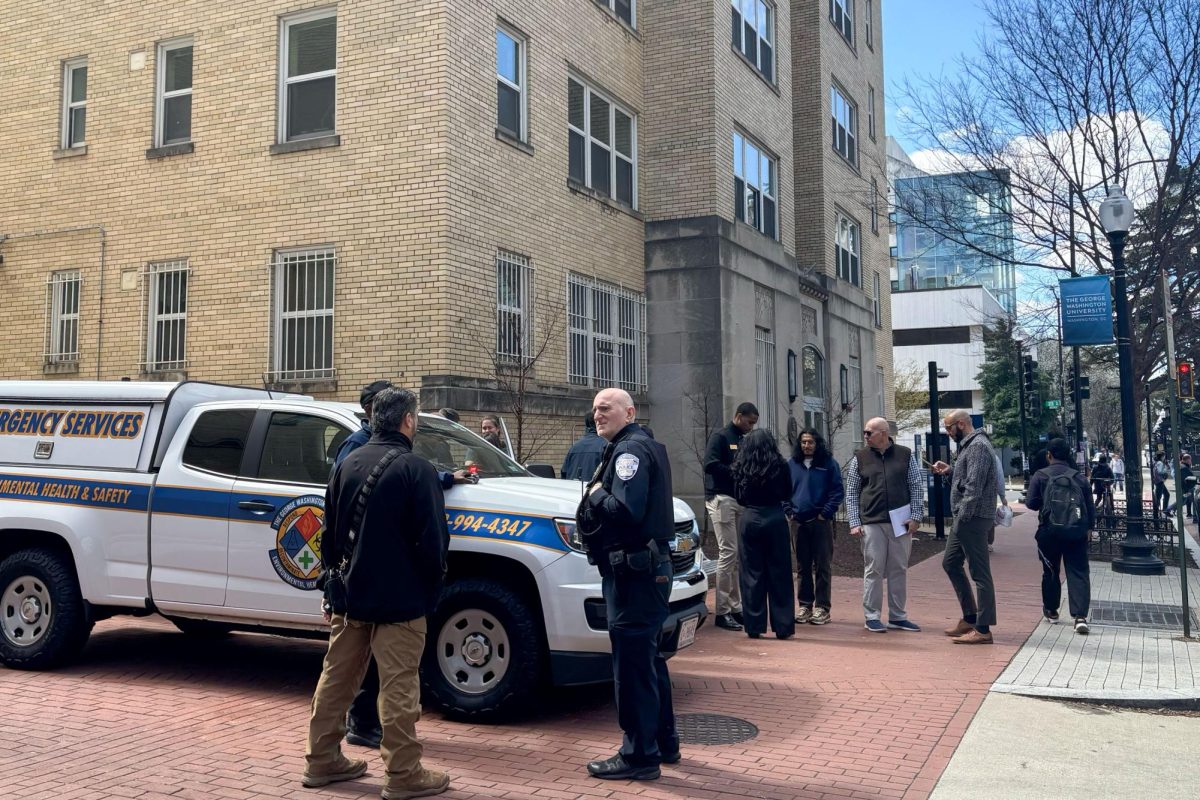About 14 people between the ages of 15 and 24 die from suicide every day. Suicide was the third-leading cause of death among people 15 to 24 years of age in 1997, and there are about eight to 25 attempted suicides for each completed act.
The issue strikes close to home since Yvette Moorehead, GW volleyball coach, was found dead in her Arlinton, Va., home Aug. 9. Police are investigating the cause of death as suicide.
Why do people take their own lives?
Suicide is a tragic, complex behavior usually caused by a combination of factors. But suicide is a potentially preventable problem.
It is not uncommon for students to have suicidal ideation, said Dr. Diane DePalma, director of the University Counseling Center. If you hear of a friend or another student with suicidal ideation, it’s not time to panic or despair, but to get assistance.
DePalma said it’s critical for someone who is feeling depressed and having thoughts about hurting themselves to find someone to talk to – a friend, family or clergy member, a professor, community facilitator or professionals at the counseling center.
It’s important to get help, she said.
There has not been an on-campus suicide at GW since the mid-1980s, although there have been instances when students and staff have taken their lives somewhere away from the campus.
DePalma attributes the low number of completed on-campus suicide attempts to the network of people on campus who keep their ears open listening for troubled students. Counseling center staff members and community facilitators living in residence halls are trained to help students who are depressed or contemplating suicide.
We train them to recognize the symptoms: changes in body weight, not going to classes, sleeping late in the day and changes in appearance, said Robert Wilson, assistant director for education services for the counseling center. Many people tell someone that they are feeling that depressed. They don’t want to kill themselves; they just want to stop feeling that way.
DePalma said more than 200 students visit the counseling center each year reporting depression and who also may have had thoughts about suicidal action; however, most of these students are at very low risk of attempting suicide.
Wilson outlined the counseling center’s course of action for someone who comes in feeling depressed and suicidal.
We’re going to talk to them very closely, he said. What are their concerns, how suicidal are they. Are they safe? If there’s imminent risk, then we arrange for hospitalization. But that usually doesn’t happen at GW.
We usually try to work with them to find a way to deal with the stress.
There are different levels of depression on campus at different times of the school year. Wilson said that the start of the semester is typically a time of heightened anxiety and building pressure.
People are feeling overwhelmed, as they also do during midterms and other exam times, Wilson said.
Among young people ages 20 to 24, the suicide rate in 1997 was 13.6 per 100,000, or 2,384 deaths among the 17.5 million people in this age group, according to the National Institute of Mental Health. Suicide outnumbered homicides three to two for all age groups in the United States in 1997. There were twice as many deaths attributed to suicide than HIV and AIDS, making suicide the eighth highest overall cause of death in the country.
The most compelling risk factors for attempted suicide among young people are depression, alcohol or drug use and aggressive or disruptive behavior. However, many people experience one or more risk factors and are not suicidal.
It is important to always take comments about suicide seriously, according to the National Institute of Mental Health Web site. Even indirect comments, such as joking about suicide, may represent a subtle cry for help.
It is important to listen in a sensitive, nonjudgmental and non-threatening way to anyone who says they are feeling depressed and having suicidal thoughts, according to a pamphlet available at the counseling center, Students in Distress.
People should let the student talk and then express their understanding, Wilson said. If possible, people confronted with this situation should try to identify with the pressure and the stress.
Counselors suggest that people try to assure the student that their situation can get better and that things will not always seem as hopeless, and suggest resources for getting help, such as consulting a counselor on campus. One should also point out that help is available and stress that seeking assistance is a sign of strength and courage, not weakness.
You call a doctor if you break your arm, so call a counselor if you are depressed or suicidal, Wilson suggested.
Most importantly, people should not hesitate to ask for help.
If you think it’s a serious threat, call the counseling center or UPD or go see your CF, Wilson said. And if they’re talking suicide, take it as a serious threat. You don’t want to regret it later.






